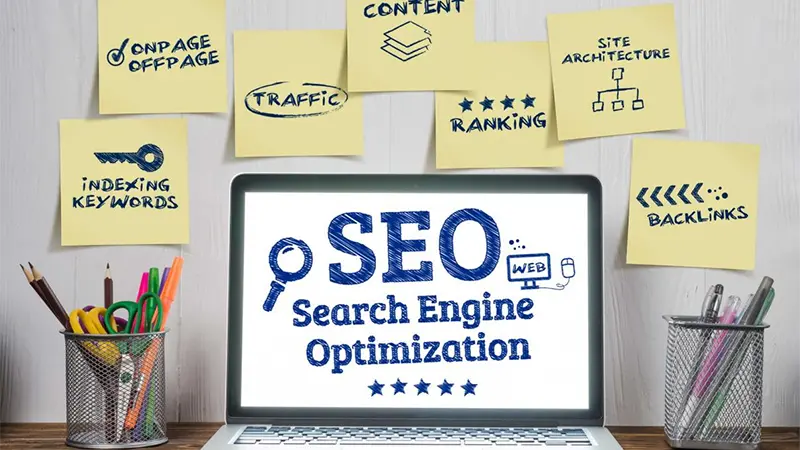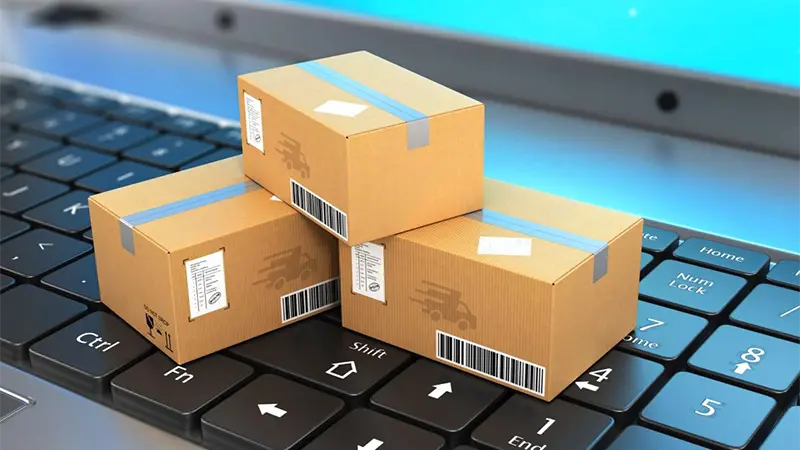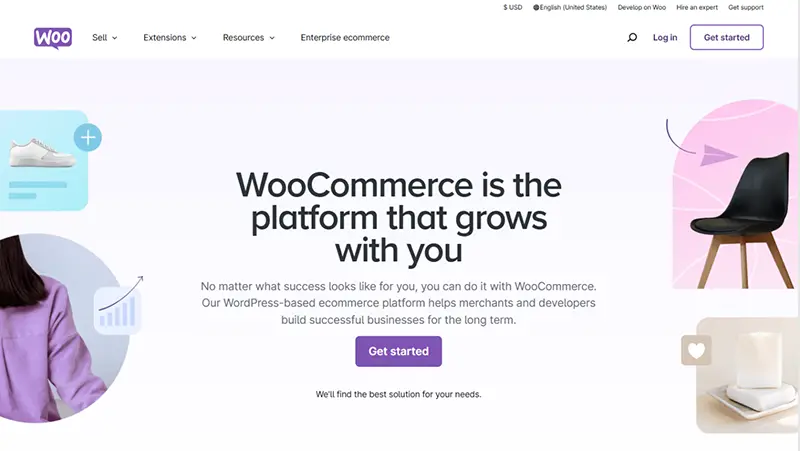
Is Selling on Etsy Worth It? A Guide to the Pros and Cons in 2026
As we look ahead to 2026, the allure of Etsy remains undeniable for creative entrepreneurs. It's a vibrant marketplace built on the promise of connecting artisans and lovers of unique goods. If you have a passion for creating products with a personal touch, Etsy presents itself as the perfect place to launch your business and find your audience.
But as the platform continues to evolve, is it the right choice for you? While Etsy offers a massive built-in customer base and an easy entry point, it also comes with significant challenges that have intensified over time, from mounting fees to fierce competition. In this guide, we'll take a deep dive into the pros and cons of selling on Etsy to help you make an informed decision for 2026.
Overview: What is Etsy?
At its core, Etsy is a global online marketplace focused on handmade goods, vintage items, and craft supplies. Launched in 2005, it has grown into a massive e-commerce powerhouse, boasting over 7.5 million sellers and more than 90 million active buyers as of recent data.
What makes Etsy unique is its emphasis on authenticity and craftsmanship. Unlike generic marketplaces, the heartbeat of the platform is its community of sellers and shoppers who value originality. Whether you're an artist, a designer, or a collector, Etsy provides a space to showcase your work. Its user-friendly tools make it simple for even first-time sellers to set up a professional-looking storefront. However, it's crucial to weigh the platform's benefits against its ever-present drawbacks.

Pros of Selling on Etsy
There are plenty of compelling reasons why an Etsy store remains the go-to choice for so many creative businesses heading into 2026.
1. Instant Access to a Massive, Eager Audience
Etsy's greatest strength is its large, engaged customer base, a user base that continues to grow year after year.
With millions of active buyers specifically looking for unique and handmade items, you gain immediate access to a targeted audience without needing a huge marketing budget from day one. The platform's algorithm is designed to connect shoppers with niche products, meaning your listings are shown to potential customers already interested in what you offer.
2. Remarkably Easy and Fast Setup
Setting up a shop on Etsy is incredibly straightforward. The platform guides you through every step, from listing products and uploading photos to setting prices and writing descriptions. You don't need any technical expertise to launch a visually appealing and functional online store, making it a perfect entry point for beginners.
3. A Strong Community and Seller Resources
Etsy provides a robust support system for its sellers. The Etsy Seller Handbook is a comprehensive guide covering everything from SEO best practices to branding your shop.
Additionally, seller forums and social media groups offer a space to connect with experienced entrepreneurs, share advice, and find solutions to common challenges. Etsy's built-in analytics also help you track your store's performance and make data-driven decisions.

4. Built-in Marketing and Advertising Tools
Etsy offers several tools to help you promote your products, and these systems are becoming more sophisticated. Etsy Ads lets you pay to have your listings featured prominently in on-site search results.
Offsite Ads automatically promotes your products on platforms like Google, Facebook, Instagram, and Pinterest. While these come at a cost, they allow you to tap into Etsy's marketing machine to drive more sales.
5. Simplified Global Payments
Etsy Payments streamlines the transaction process by allowing you to accept a wide variety of payment methods, including credit cards, PayPal, Apple Pay, and Google Pay. This eliminates the hassle of setting up third-party payment gateways and makes it easy for international customers to purchase from your shop. All your finances are managed in one place, simplifying your bookkeeping.
6. Low Initial Startup Costs
Creating an Etsy shop is completely free. This low barrier to entry makes it an accessible option for hobbyists and entrepreneurs on a tight budget. You only incur fees once you start listing items ($0.20 USD per listing) and make a sale. This pay-as-you-go model allows you to test your business idea without a significant upfront investment.

The Challenges: 7 Cons to Consider Before Selling on Etsy
As mentioned earlier, Etsy offers great benefits to small businesses, creators, and more. However, there are downsides to being on a platform like Etsy.
Despite its benefits, selling on Etsy isn't without its difficulties. Here are some of the major drawbacks to be aware of for 2026.
1. The 'Death by a Thousand Cuts': Etsy's Multiple Fees
While the startup costs are low, the fees can quickly add up. Sellers must remain vigilant as these fee structures can be adjusted. Here's the current breakdown:
- Listing Fee: $0.20 for each item listed, which must be renewed every four months.
- Transaction Fee: 6.5% of the total order amount (including shipping and gift wrapping).
- Payment Processing Fee: Varies by country, but in the US, it's typically 3% + $0.25 per transaction.
- Offsite Ad Fee: If you make over $10,000/year, you are automatically enrolled in Offsite Ads and charged a 12-15% fee on sales generated from those ads.
These combined fees can make it challenging to price products competitively while remaining profitable.
2. Navigating the Crowded Marketplace
Competition on Etsy, already fierce, is expected to intensify further in 2026. Saturated categories like jewelry, home decor, and clothing are filled with thousands of similar products. To succeed, you must invest significant effort in top-notch photography, SEO, and creating a unique selling proposition (USP) to stand out.

3. The Dilution of 'Handmade'
Originally a haven for handmade goods, Etsy now has a growing number of resellers and mass-produced items on the platform. This ongoing trend can make it difficult for genuine artisans to compete and continues to be a point of contention within the seller community.
4. Limited Control Over Branding and Store Customization
While you can add a banner and logo, Etsy offers very limited control over your shop's design and branding. All storefronts follow a similar template, making it hard to create a unique brand identity that customers will remember. This lack of customization is a significant drawback compared to building your own website.
5. You're on Your Own for Fulfillment and Shipping
Etsy does not offer any in-house fulfillment services. Sellers are solely responsible for packaging, shipping, and handling all customer service related to delivery.
As your business grows, these logistics can become incredibly time-consuming. This is where integrating with a print-on-demand (POD) service can be a game-changer, automating production and shipping.

6. The Unpredictability of Platform Policies
History has shown that Etsy isn't shy about making significant changes to its algorithms, fee structures, and seller policies, sometimes with little notice. This creates an unstable environment for sellers who rely on the platform for their income.
7. Building Customer Loyalty is a Major Hurdle
On Etsy, customers often feel more loyalty to the Etsy marketplace than to individual shops. They are there to browse and may not remember your specific brand after a purchase. This makes it difficult to build a loyal customer base and encourage repeat business, which is a critical component of long-term success.
What Products Sell Best on Etsy?
Etsy remains a fantastic platform for certain product categories. Popular categories include:
- Craft & Supplies: Unique beads, fabrics, and DIY kits.
- Handmade Items: Personalized and custom-made goods.
- Jewelry: Especially minimalist and personalized pieces.
- Wedding Items: Invitations, decor, and personalized gifts.
- Accessories: Enamel pins, custom bags, and phone cases.
- Home & Living: Wall art, custom mugs, and unique decor.
- Vintage Items: Clothing, jewelry, and collectibles over 20 years old.
The top-selling shop CaitlynMinimalist is a perfect example, specializing in personalized and delicate jewelry that resonates deeply with Etsy's core audience.

Exploring Your Options: Key Etsy Alternatives
As the e-commerce landscape evolves, it's wise to know your options. If the cons of Etsy outweigh the pros for you, consider these powerful alternatives:
1. Amazon Handmade
Best for reaching a massive audience. It gives you access to Amazon's huge customer base and world-class fulfillment (FBA). However, the application process is stricter, and the platform has a less "crafty" community feel.
2. Shopify
Best for building a scalable brand. Shopify offers complete control over your branding, design, and customer experience. The trade-off is that you are responsible for generating all of your own traffic.
3. WooCommerce
Best for ultimate customization and control. As a plugin for WordPress, WooCommerce is a powerful, flexible, and open-source option. Like Shopify, it requires you to handle your own marketing and traffic generation.

The Final Verdict: Should You Sell on Etsy in 2026?
So, what's the final verdict for 2026? The answer still depends on your specific goals.
- Beginners and Hobbyists: Who want to test a product idea with minimal risk and investment.
- Artists and Makers: The attributes you choose (like color, size, or material) also play a role in how Etsy ranks your products. Make sure these details accurately reflect your product and align with what buyers are looking for.
- Sellers Looking for a Side Hustle: Who can benefit from Etsy's existing traffic without needing to build a marketing strategy from scratch.
You might want to consider an alternative if you are:
- Serious About Building a Long-Term Brand: The lack of customization will eventually limit your growth.
- Selling Products with Thin Profit Margins: The multiple fees can make profitability difficult.
- Looking to Scale Your Business Quickly: Relying on a single platform with unpredictable policies is risky for a primary source of income.
Ultimately, Etsy can be a fantastic stepping stone into the world of e-commerce, but it's essential to go in with a clear-eyed view of both its powerful advantages and its significant, evolving limitations.
Frequently Asked Questions About Selling on Etsy
Q1: Why are some sellers leaving Etsy?
The reasons sellers explore alternatives to Etsy continue to revolve around rising fees, intense competition from mass-produced goods, and unpredictable platform policy changes. These factors can reduce profitability and make it harder for genuine handmade artisans to succeed, prompting them to seek platforms that offer more control and lower costs.
How do I open an Etsy shop?
To open an Etsy shop, sign up for an account on Etsy.com, choose a unique shop name, and set your language, country, and currency. From there, you will list your first item, set up your payment and billing methods, and customize your shop policies and profile. Etsy's user-friendly interface makes the process quick and easy.
Is it legal to sell on Etsy?
Yes, it is completely legal to sell on Etsy, provided you comply with the platform's policies. Ensure your products fit into Etsy's allowed categories (handmade, vintage, or craft supplies) and adhere to their terms of service to avoid any issues.
Can I sell on Etsy and my own website at the same time?
Absolutely. Many successful sellers use a multi-channel approach. They use Etsy to attract new customers and drive initial sales, while simultaneously building their own website (like on Shopify or WooCommerce) to cultivate a brand, capture customer data, and retain loyal buyers for the long term.



